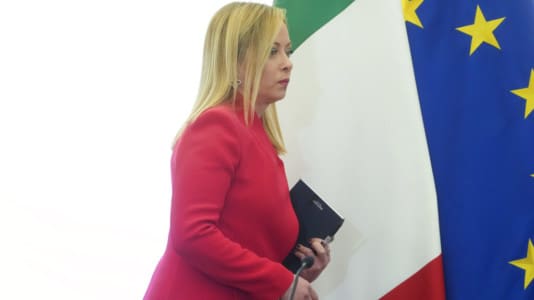Immigration has always been an economic requirement for France and is a part of the country’s DNA, French President Emmanuel Macron has claimed despite studies showing “immigration costs more than it brings in” and lands taxpayers with bills worth tens of billions of euros every year.
“France has always been a land of immigration,” Macron claimed. “It is part of our DNA, it is the strength of our country, and we have always needed it for our economy.”
In a wide-ranging interview with French newspaper Le Parisien, Macron confirmed his desire to increase the retirement age in the country and offered his view on the need for more immigration to realize his vision for France.
He questioned how French mines would have functioned without Polish immigration over the last century, and how the country’s agricultural sector would have thrived without Italians, Spaniards, and migrants from the country’s former African colonies.
“Without African immigrants, how would the construction industry have turned out? And you know, there were already movements of rejection at the time,” Macron said.
The French president acknowledged there was a strong dissenting view on the benefits from the mass immigration witnessed over the past decades, but he argued that immigration continues to play an important role in the country’s economy today.
[pp id=54596]
“Let’s be clear. Do we sincerely think that the restaurant industry, agricultural work, and many other sectors could function without immigration? We must be honest and say that the answer is no,” he told the newspaper.
“But we must have a double movement,” he said, arguing that the country cannot solely rely upon migrant labor, but “must push all French men and women who are in a position to work to do so.”
“We cannot accept having an unemployment rate that is still so high with so many unfilled jobs that can perfectly well be filled by people receiving unemployment benefits,” he added.
The costs of migration
In contrast to Macron’s claims, there are those who point to a number of sobering statistics regarding non-European immigration. For example, much money and resources have been spent on fighting migrant gangs and rising crime levels associated with immigration, with Macron himself admitting just last month that half of all crimes in Paris are committed by migrants. In some cities, these figures are even worse. France’s broken immigration system has also led to tragedy, including the murder of Lola, a 12-year-old Paris schoolgirl, by an Algerian migrant in October who raped the girl, slashed her throat, and stuffed her in a suitcase.
Regarding the actual issue surrounding the economic benefits of migration, numerous studies have shown that immigrants incur dramatic costs for the French. As Remix News reported last year, French author and academic Jean-Paul Gourévitch, on an appearance on Radio Sud, said that employment data shows that it is a myth that immigration to France has economic benefits.
[pp id=8084]
“I have studied this topic extensively, and today everyone in France, from the left to the right agrees that immigration costs more than it brings in,” Gourévitch said. “There is a major difference between left and right (oriented) economists regarding the costs: The leftist economists say the deficit is 6 to 10 billion [euros per year], while those on the right say it is 40 to 44 billion. My own scientific research shows that the deficit is 20 to 25 billion (euros).”
Undoubtedly, immigrants are serving in various roles in France’s industry, especially in restaurants and agriculture, for example. However, they also play a role in driving down wages for French citizens, and a huge swath of them remain unemployed and resistant to integration efforts. Immigration has also led to a rise in housing prices, overcrowding in cities, and substantial segregation in the schooling system, including regarding White liberals in the Parisian school system, with many rushing into private schools.
Although France has historically seen immigration from European countries over the centuries, this amount has been highly limited, and for the most part, native French people have inhabited their lands for centuries, if not millennia. The advent of non-European immigration is a greatly recent phenomenon, and only in the last decades has it reached enormous proportions that threaten to transform the country demographically.






